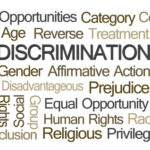Author Archives: Jay Butchko

What Process Should I Expect When Filing a Claim with the Florida Commission on Human Relations (FCHR)?
When a job applicant or an employee faces actionable employment discrimination, they may be eligible to file a discrimination claim under state or federal law. When a claim is filed under federal law, the process begins with a charge of discrimination filed through the US Equal Employment Opportunity Commission (EEOC). When a claim is… Read More »

Do I Need to Tell My Employer If I Am or Plan to Become Pregnant?
Many job applicants and employees throughout South Florida worry about how plans to become pregnant, or a current pregnancy, might impact their employment situation. Indeed, for many job applicants and employees, it feels important to hide pregnancy plans or a current pregnancy from an employer in order to prevent discrimination or retaliation. Yet for… Read More »

Common Forms of Unlawful Age Discrimination in Employment
Age discrimination is an unlawful form of discrimination in Florida employment contexts. However, it is important to understand that protections against age discrimination only apply once you reach the age of 40, and this type of discrimination can be especially difficult to prove. Many job applicants and employees in South Florida experience discrimination on… Read More »

What Are the Possible Remedies if I File a Claim Under the FLSA?
The federal Fair Labor Standards Act (FLSA) governs a range of employment-related laws in South Florida, particularly those related to wage and hour laws. While some states have state-specific laws that provide employees with greater protections than those provided under the FLSA, the FLSA is the applicable law for most cases in Florida involving… Read More »

Unlawful Questions During a Job Interview
There are many different ways employers can discriminate against job applicants in South Florida, and if you are applying for new jobs, it is important to know what you should look for during the application process. Often, discriminatory actions are subtle. While an employer certainly can violate state or federal law by overtly making… Read More »

What is USERRA and Who Does It Protect?
While some types of employment laws are discussed with relative frequency, such as federal laws like Title VII of the Civil Rights Act of 1964 and the Americans with Disabilities Act (ADA), or state laws like the Florida Civil Rights Act (FCRA), there are additional laws that provide employment-related protections for particular kinds of… Read More »

Right to Fair Pay and the Fair Labor Standards Act
Some states have their own fair pay laws that provide employees with more rights than what employees have under federal law. It is important for employees in Florida to know that this state does not have any of these state-based fair pay laws, which means that a Palm Beach Gardens employee’s rights to fair… Read More »

Unlawful Retaliation Under the FLSA
The federal Fair Labor Standards Act (FLSA) ensures that employees in Florida and throughout the country are paid fairly for their work. The FLSA has a number of components that require employers to pay all non-exempt employees at least the minimum wage for each hour worked, overtime pay at the rate of 1.5 times… Read More »

Stereotypes and Employment Discrimination
Stereotypes are prevalent in our society, and people often make assumptions about others based on characteristics such as the city or state where they grew up, where they attended college, the type of car they drive, how much money they make, the kinds of clothes they wear, and more. While these kinds of stereotypes… Read More »

Which Employees Are Protected by Title VII?
Many job applicants and employees have protections against discrimination under Title VII of the Civil Rights Act of 1964, a federal law that prohibits various forms of employment discrimination. While Title VII is named frequently when questions about employee rights and discrimination arise, it is important to understand which employees are protected by Title… Read More »
